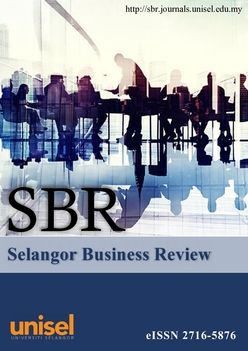Fraud Triangle Theory and Accounting Irregularities
A Conceptual Framework
Abstract
Financial statements are a very useful tool for economic decision-making and they are produced as a result of the accounting process which comes from all transactions that occur within a company. Nowadays, economic development is fast growing which inevitably leads to stiff competition among companies, hence they strive to present financial statements. In this case, preserving shareholders’ confidence is of utmost importance as they might withdraw their money from the invested companies if they do not feel safe. This causes the company to think of various strategies to increase the company’s value and present a sound figure of financial statements. Thus, companies might involve themselves in accounting irregularities and other financial statements fraudulent to present an attractive financial statement. Fraud can happen through manipulation of the value of the account and reported values that are not following the real situation. The objective of the study is to examine the influence of the dimension of fraud triangle theory namely pressure, opportunity, and rationalization on accounting irregularities. This study provides more insights into fraud theories and accounting irregularities.





 3,026
3,026 2,412
2,412 1,466
1,466